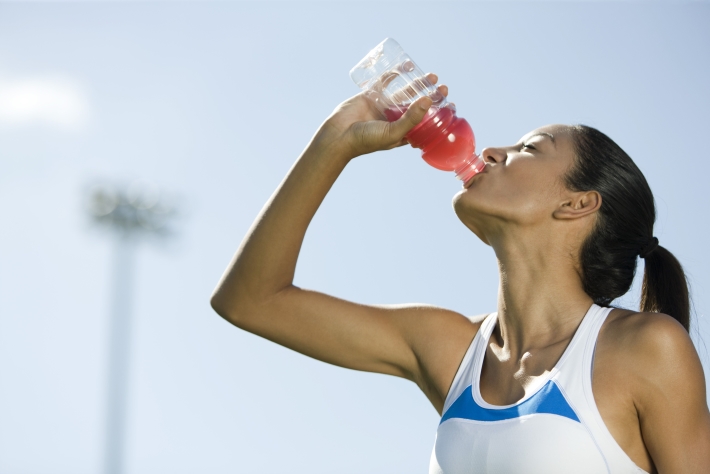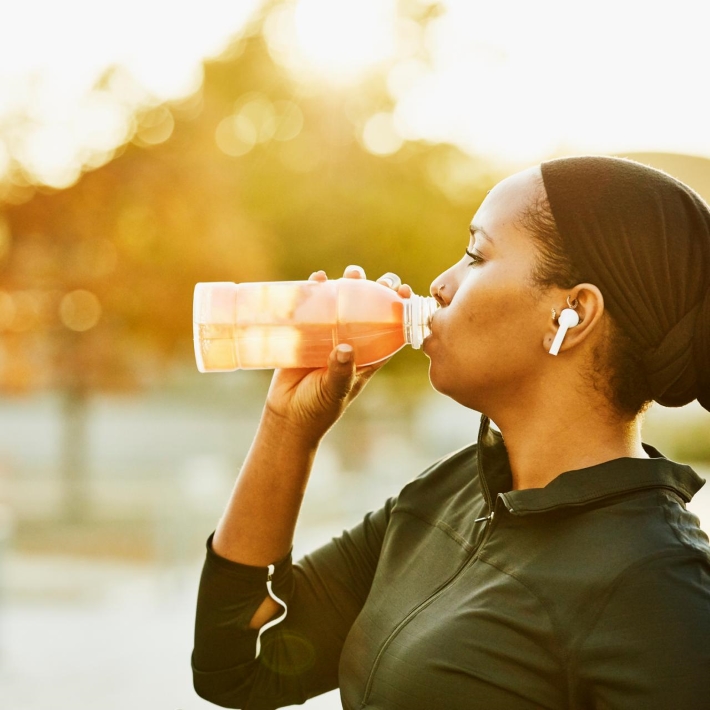Contents
Your body is a complex symphony, where every instrument plays a crucial role in harmony. Electrolytes, essential minerals found in your body fluids, act as the conductors of this symphony, ensuring proper communication and function within your cells. They play a vital role in maintaining hydration, regulating muscle function, and supporting nerve transmission.
In recent years, electrolyte drinks have surged in popularity, lining grocery store shelves and becoming a staple for athletes and fitness enthusiasts alike. While their presence is undeniable, so are the questions surrounding their true necessity and appropriate use.
What Are Electrolyte Drinks For?

Imagine tiny conductors swimming through your body fluids, ensuring everything runs smoothly. These are electrolytes, mineral compounds that dissolve in water and carry an electrical charge. They play a crucial role in various bodily functions, acting like the conductors of an intricate symphony.
As fitness trends evolve and our understanding of optimal hydration grows, a replenishing and easily digestible electrolyte drink has become a common presence in stores and on workout benches. Yet, with their rising popularity comes a flurry of questions about their true necessity and appropriate use.
These electrolytes work together to orchestrate various vital processes. They help your body retain water, ensuring proper hydration. Electrolytes are also essential for muscle contraction and relaxation, and imbalances can lead to muscle cramps, weakness, and fatigue. Additionally, they are vital for the proper transmission of nerve impulses throughout your body, enabling communication between your brain, muscles, and organs.
Who Needs Electrolyte Drinks?
While electrolytes are vital for everyone, not everyone necessarily needs to rely on these types of drinks to maintain their balance. However, certain individuals can benefit from including these drinks in their routine:
Athletes and Individuals Engaging in Strenuous Exercise
During intense physical activity, especially for extended durations (over an hour), you lose significant amounts of fluids and electrolytes through sweat. These drinks can help replenish these lost electrolytes and support muscle function, hydration, and performance. When engaging in heavy exercise, pay attention to your body’s signals and drink accordingly.
People Exposed to Hot and Humid Environments
Hot and humid environments can cause excessive sweating, leading to electrolyte depletion. Consuming electrolyte drinks can help individuals working or exercising in these conditions maintain their electrolyte balance and prevent dehydration. Even if you’re not actively sweating, individuals living in hot and humid regions can also benefit from these drinks to prevent electrolyte imbalances.
Individuals Experiencing Conditions Causing Dehydration
Conditions like diarrhea and vomiting can lead to significant fluid and electrolyte loss. Electrolyte beverages, alongside oral rehydration solutions, can be crucial for rehydrating and restoring electrolyte balance in such situations. Let’s say you have food poisoning or a stomach bug; in that case, electrolyte drinks can help you stay hydrated and replenish the lost electrolytes when solid foods are hard to keep down.
When and How to Consume Electrolyte Drinks
Before diving into when and how to consume electrolyte drinks, it’s crucial to differentiate them from their often confused cousin, sports drinks. While both contain electrolytes, their primary purpose differs. These beverages are specifically formulated to replenish electrolytes lost through sweating or other forms of fluid loss. They typically have a lower sugar content compared to sports drinks, which are designed to provide both electrolytes and energy (primarily through carbohydrates) for athletes engaged in intense exercise.
Now, let’s explore the timing of electrolyte drink consumption:
- Before Exercise: While generally unnecessary for shorter, moderate-intensity workouts, consuming a small amount of an electrolyte drink 30-60 minutes beforehand can be beneficial for individuals engaging in prolonged, strenuous exercise (especially in hot weather) to ensure proper hydration and electrolyte levels from the start.
- During Exercise: For long-duration, intense activities, sipping on an electrolyte drink every 15-20 minutes can help replace lost electrolytes and maintain hydration.
- After Exercise: Replenishing electrolytes after exercise is crucial, especially following vigorous workouts. Aim to consume an electrolyte drink within 30 minutes of finishing your exercise, alongside water to rehydrate effectively.
It’s essential to bear in mind that individual needs vary. Factors like type and intensity of exercise, climatic conditions, and personal sweat rate all play a role in determining your specific electrolyte requirements. Consulting a healthcare professional can be invaluable in identifying your optimal electrolyte needs and tailoring your consumption strategy accordingly.
Choosing the Right Electrolyte Drink

With the diverse array of electrolyte drinks available, navigating the options can feel overwhelming. When it comes to selecting the best option for your needs, you need to take into account several important factors.
Electrolyte Content and Balance
- Sodium: Look for drinks containing moderate amounts of sodium, especially if you engage in intense or prolonged exercise in hot environments. However, individuals with high blood pressure should consult a healthcare professional before opting for high-sodium options.
- Potassium: Most healthy individuals get enough potassium from their diet, so prioritize drinks with moderate potassium content unless specifically advised by a healthcare professional.
- Other Electrolytes: Look for drinks containing other essential electrolytes like calcium, magnesium, and chloride, but remember, a balanced approach is crucial.
Sugar Content and Alternatives
Many electrolyte beverages are loaded with sugar, which can contribute to unwanted calorie intake and potentially negate the hydration benefits. Here are some options:
- Low-sugar or sugar-free drinks: Ideal for individuals watching their sugar intake or managing conditions like diabetes.
- Coconut water: A natural source of electrolytes with a moderate amount of sugar.
- Homemade: Using ingredients like water, coconut water, a pinch of salt, and a squeeze of citrus can create a personalized, low-sugar alternative.
Flavour and Personal Preferences
Variety is key! Select a beverage that has a taste you truly like, as this will promote regular intake and guarantee adequate hydration. Try out various alternatives to discover which ones are most appealing to your palate. Remember, the “right” electrolyte drink depends on your individual needs and preferences. Consulting a healthcare professional can provide personalized guidance based on your health, activity level, and any specific dietary considerations you may have.
Finishing Thoughts
Remember, a balanced diet rich in fruits, vegetables, and whole grains is often sufficient for most individuals to maintain their electrolyte levels under normal conditions. However, it’s important to remember that consulting a healthcare professional is crucial before starting any new supplements for your goals. Finally, don’t forget that moderation is key. While electrolyte drinks can be beneficial in specific situations, overconsumption can lead to electrolyte imbalances and potential health complications.



